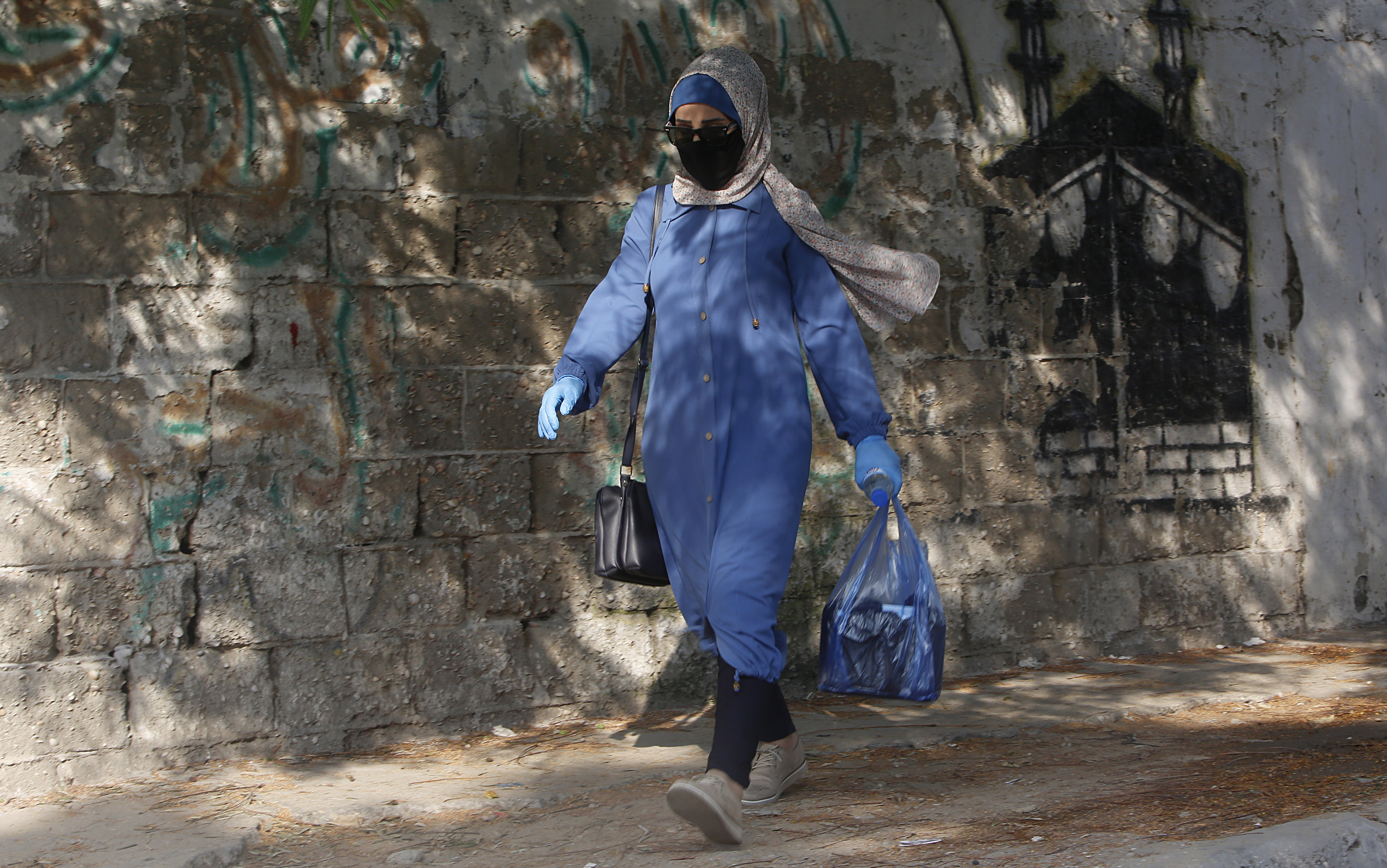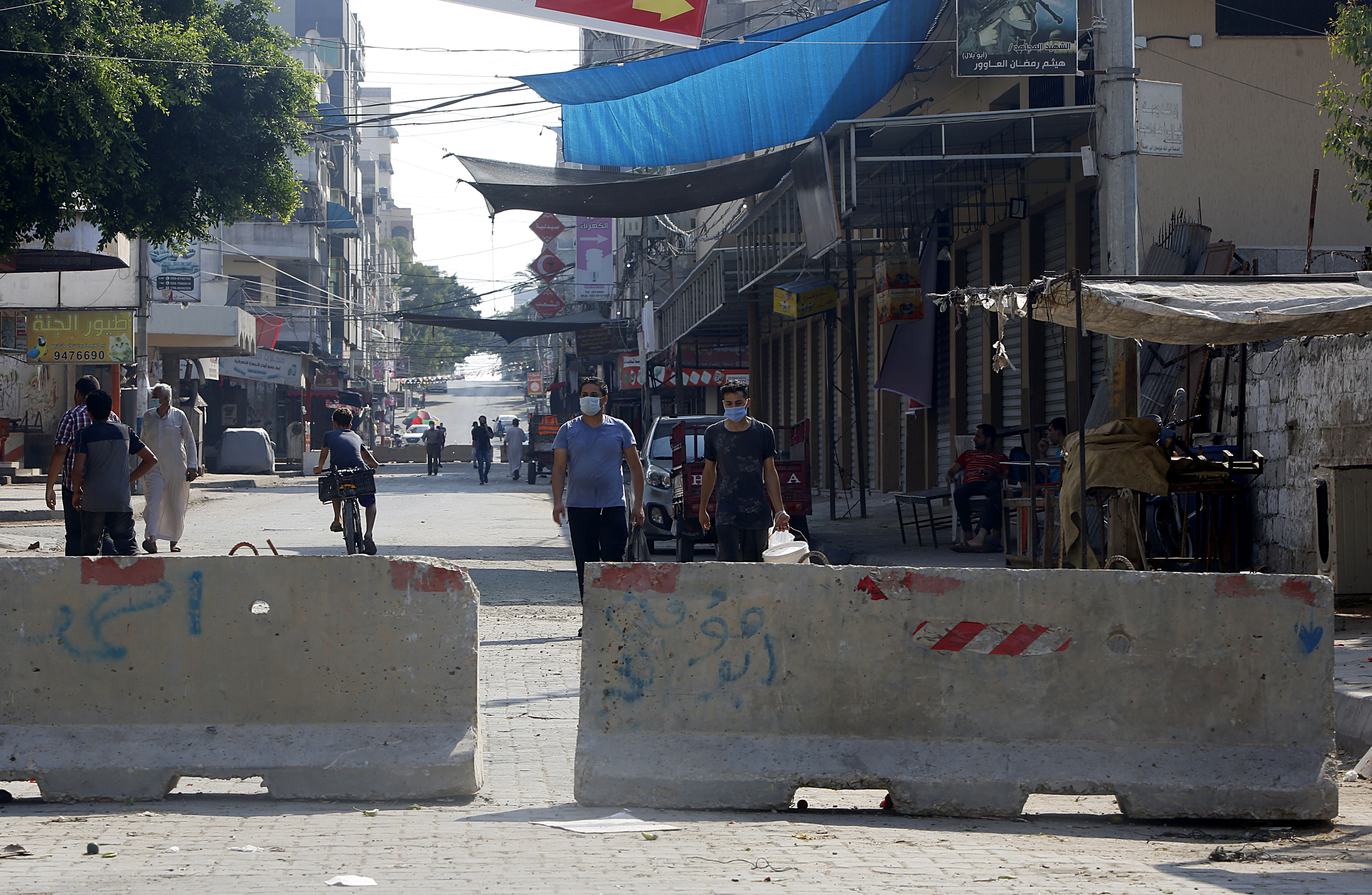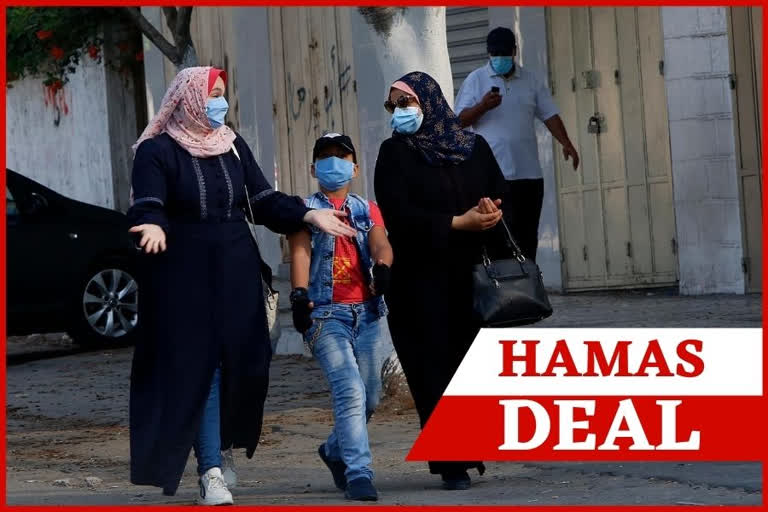Gaza City: Gaza’s Hamas rulers said Monday they have reached an agreement through international mediators to end the latest round of cross-border violence with Israel.
Under the deal, Hamas is to halt the launches of explosives-laden balloons and rocket fire into Israel, while Israel said it will ease a blockade that has been tightened in recent weeks. The Israeli restrictions have worsened living conditions in Gaza at a time when it is coping with a new coronavirus outbreak.
As a result of indirect mediation efforts led by Egypt, the United Nations and Qatar, Hamas said, "Several projects will be announced to serve our people in Gaza Strip and contribute in mitigating difficult living conditions."
Its statement didn't detail any of the projects but it said, "Conditions would return to what they were before the escalation."

Under previous, unofficial understandings reached through intermediaries, Hamas has sought a broader easing of restrictions on movement, increased power supplies from Israel and large-scale economic projects to help lower unemployment hovering around 50 per cent. It accuses Israel of moving too slowly or not honouring its commitments.
COGAT, an Israeli defense body responsible for Palestinian civilian affairs, announced late Monday that it would immediately reopen Gaza's only cargo crossing and resume fuel shipments into the territory. It also said it would reopen a 15-mile (25-kilometre) fishing zone off Gaza's coast.
Read more: Halt in fighting suggests Middle East ceasefire deal
“This decision will be tested on the ground: if Hamas, which is accountable for all actions that are taken in the Gaza Strip, fails to stand its obligations, Israel will act accordingly,” it said.
The UN envoy to the region, Nickolay Mladenov, welcomed the agreement.
“Ending the launching of incendiary devices and projectiles, restoring electricity will allow #UN to focus on dealing with the #COVID19 crisis,” he tweeted.
Israel and Hamas are bitter enemies that have fought three wars and numerous skirmishes since the Islamic militant group seized control of Gaza in 2007. Israel and Egypt have maintained a blockade of Gaza since the Hamas takeover, saying the restrictions are needed to prevent Hamas from arming.

In recent weeks, pro-Hamas groups have launched scores of incendiary balloons, torching wide tracts of Israeli farmland. Militant groups have also fired several barrages of rockets into Israel.
Israel has responded with tank fire and airstrikes on militant targets, while closing Gaza's only cargo crossing, cutting off fuel supplies to the territory's only power plant, and halting access to fishing waters. Residents had been left with just four hours of electricity a day during the sweltering summer.
Last week's detection of the first cases of locally transmitted coronavirus in Gaza has worsened the situation, with Hamas imposing a week-long renewable lockdown. Years of the blockade, conflicts with Israel and intra-Palestinian political feuds have left Gaza’s health care system overwhelmed and under-resourced. The World Health Organization has warned Gaza cannot handle a major virus outbreak.
Also read: Aftermath of Israeli airstrikes in Gaza
(With inputs from AP)



